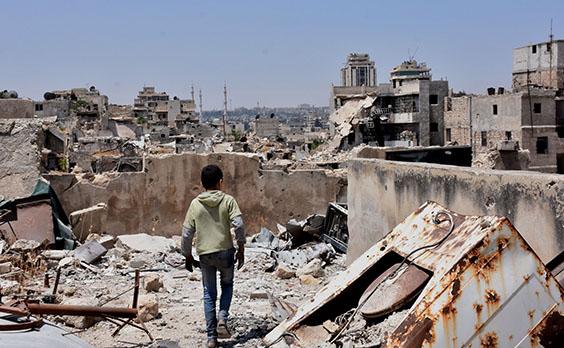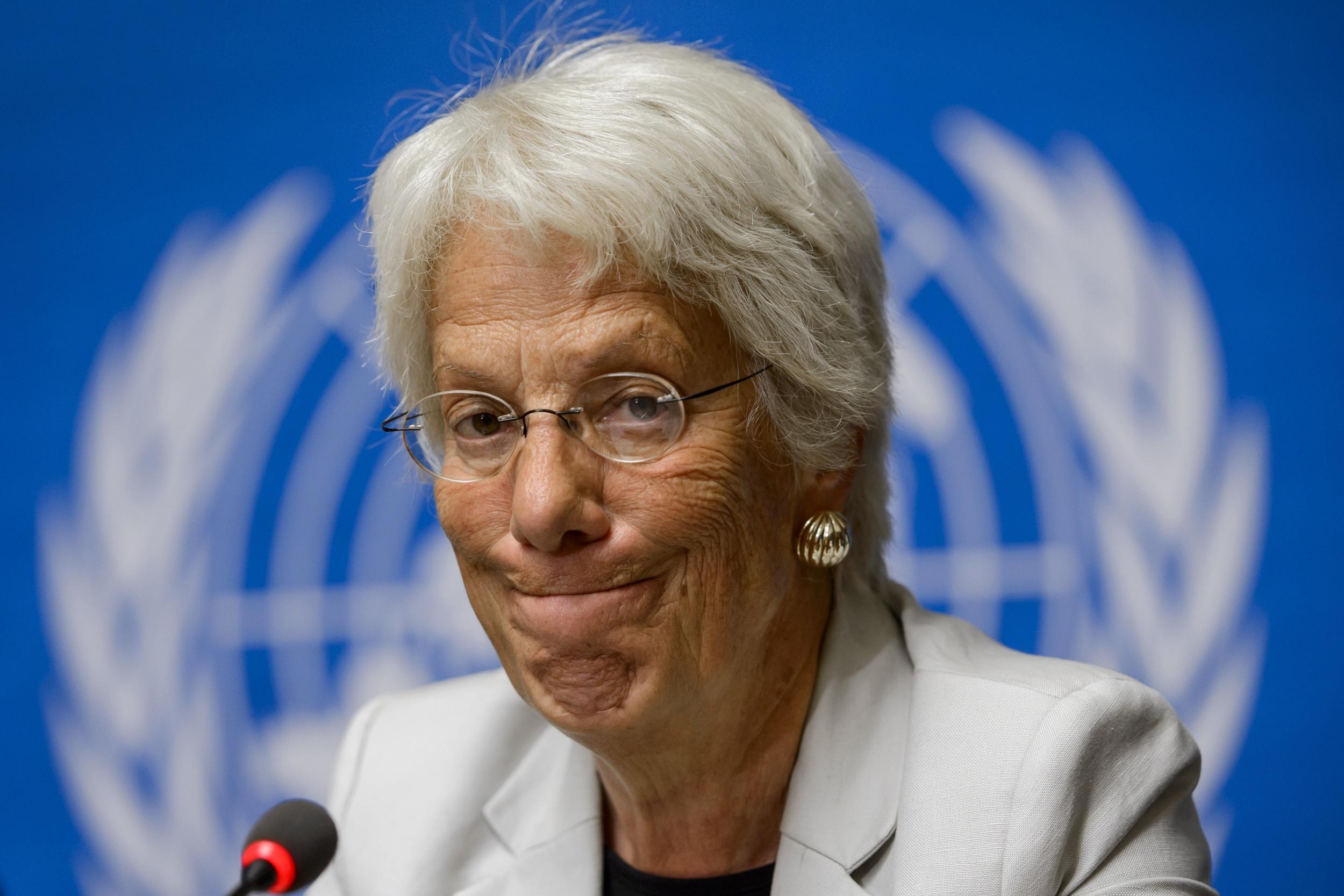War crimes prosecutor quits UN panel on Syrian civil war because it's ‘pointless'
‘I give up. The states in the Security Council don’t want justice’, former prosecutor Carla Del Ponte mourns, adding that ‘everyone is bad’ in Syria now

An international war crimes prosecutor has resigned from her position on the UN’s investigative panel into human rights abuses in the Syrian civil war because she is so frustrated with its inability to hold criminals to account, it has emerged.
“I give up. The states in the Security Council don’t want justice,” Carla del Ponte told Swiss newspaper Blick over the weekend.
“I can’t any longer be part of this commission which simply doesn’t do anything.”

Ms del Ponte, the former Swiss Attorney-General, rose to prominence for her prosecution work in the international war crimes tribunals into the 1990s Rwanda and former Yugoslavia conflicts.
“Believe me, the terrible crimes committed in Syria I neither saw in Rwanda nor ex-Yugoslavia,” she said.
“We thought the international community had learned from Rwanda. But no, it learned nothing.”
In scathing comments Ms del Ponte criticised all sides in the complex six-year-old Syrian war, including the government of Syrian President Bashar al-Assad and the official rebel opposition.

When she was first appointed to the independent Commission of Inquiry on Syria in 2012, “the opposition (members) were the good ones; the government were the bad ones,” she was quoted as saying.
But after six and a half years “Everyone is bad” in the war-torn country, she said.
“The Assad government is committing terrible crimes against humanity and using chemical weapons. And the opposition, that is made up only of extremists and terrorists anymore.”
The Security Council, she said, should have appointed a court similar to those for the Rwanda and Yugoslavian wars - a decision vetoed by permanent member Russia, which is a key backer of the Assad government.
“We have had absolutely no success” holding perpetrators of war crimes in Syria to account, she added.
“For five years we’ve been running up against walls.”
While the investigative panel has compiled thousands of interviews and other documentation of possible war crimes committed by all sides in Syria, the work was pointless without a tribunal, she added.
Ms del Ponte will leave her post in September, she said, sitting on the commission’s meetings until then.
In a statement the commission said it had been aware of Ms del Ponte’s plans since June and that its work “will continue”.
With Ms Del Ponte’s departure there are now just two members left on the commission - Thai professor and former human rights investigator Vitit Muntarbhorn left in 2016 to become the UN’s first-ever independent expert investigating violence and discrimination based on sexual orientation.
In recent months the commission’s relevance has been called into question by the UN’s General Assembly, which - faced with a deadlocked Security Council - in December 2016 created a separate investigative body designed at preparing legal cases for the most serious human rights violations in Syria’s bloody civil war.
Efforts by Turkey, Russia, Iran and the US to broker talks and ceasefires have had some success so far in 2017, although reports of sporadic fighting continue, and extremists Isis continue to roam Syria’s northeast.
The Associated Press contributed to this report
Join our commenting forum
Join thought-provoking conversations, follow other Independent readers and see their replies
Comments
Bookmark popover
Removed from bookmarks